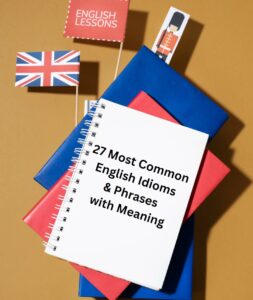
Mastering the appropriate use of modal verbs like “could”, “would”, and “should” is crucial for effective communication in English.
These words add nuance and complexity to sentences, expressing shades of meaning that simple verb forms cannot convey. However, their similar-sounding nature can sometimes lead to confusion and misuse.
In this comprehensive blog, we’ll delve into the distinct meanings and usages of these modal verbs, providing clear examples to help you grasp when and how to employ them correctly. To practice these in real life conversations, download the AceFluency App where you get 20 minutes of calling practice with co-learners for FREE every day.

Understanding the Difference: “Could,” “Would,” and “Should”
Before we explore the specific usage scenarios, let’s first understand the fundamental differences between these three modal verbs:
- Could: This modal verb is primarily used to express possibility, ability, or permission in the past or present. It is the embodiment of possibility and ability, a linguistic locksmith that unlocks the doors of what might be or what was once achievable.
- Would: This verb is often used to form the conditional tense, indicating a hypothetical or imagined situation. It can also express a characteristic or habitual action in the past. It paints vivid pictures of alternate realities and conditional situations.
- Should: This modal verb expresses a sense of obligation, recommendation, or advisability. It is the voice of reason and obligation, guiding us toward the path of recommended actions and choices.
While these definitions provide a general understanding, the nuances and specific use cases of these modal verbs are more complex and require further exploration.
When to Use “Could” in a Sentence with Examples
The modal verb “could” is employed in various contexts to convey different shades of meaning:
- Expressing Possibility or Ability:
- “She could speak four languages fluently.”
- “With a bit of effort, I could finish the project by tomorrow.”
- Requesting Permission (in the past):
- “Could I borrow your pen for a moment?”
- “When I was a child, I could stay up late during the holidays.”
- Expressing Uncertainty or Speculation:
- “That could be the reason why she didn’t come to the party.”
- “It could rain later today, so don’t forget your umbrella.”
- Expressing a Polite or Tentative Request:
- “Could you please pass me the salt?”
- “Could you explain the instructions one more time?”
In these examples, “could” conveys a sense of possibility, ability, or polite request, making it a versatile modal verb for various situations.
When to Use “Would” in a Sentence with Examples
The modal verb “would” is primarily used in the following contexts:
- Forming Conditional Sentences:
- “If I won the lottery, I would travel around the world.”
- “She would have been more successful if she had worked harder.”
- Expressing Habitual or Characteristic Actions in the Past:
- “When we were kids, we would play in the park every afternoon.”
- “My grandmother would bake delicious cookies for us every weekend.”
- Expressing a Preference or Willingness (in the past):
- “I would love to visit Paris someday.”
- “Back then, she would often stay up late studying.”
- Making Polite Requests or Offers:
- “Would you like some more coffee?”
- “I would be happy to help you with that project.”
In these examples, “would” is used to describe hypothetical situations, past habits or characteristics, preferences, and polite requests or offers.
When to Use “Should” in a Sentence with Examples
The modal verb “should” is primarily employed to express obligation, recommendation, or advisability:
- Expressing Obligation or Duty:
- “Students should respect their teachers.”
- “You should always wear a seatbelt while driving.”
- Giving Advice or Making Recommendations:
- “You should try the new restaurant downtown; the food is amazing.”
- “To stay healthy, you should exercise regularly and eat a balanced diet.”
- Expressing Expectation or Logical Consequence:
- “If you study hard, you should pass the exam.”
- “After such a long journey, they should be exhausted.”
- Expressing Opinion or Suggestion:
- “I think we should leave early to avoid traffic.”
- “She should have been more careful with her words.”
In these examples, “should” conveys a sense of obligation, recommendation, or advisability, making it useful for expressing expectations, giving advice, or suggesting a course of action.
Also Read: Improve English Speaking by Reading Books
Common Mistakes to Avoid When Using “Could,” “Would,” and “Should”
While using these modal verbs, it’s essential to be mindful of potential pitfalls to avoid confusion or misunderstanding:
- Mixing up “Could” and “Would”: Incorrect: “If I had more time, I could go to the gym more often.” Correct: “If I had more time, I would go to the gym more often.”
- Misusing “Should” for Ability or Possibility: Incorrect: “You should be able to solve this problem easily.” Correct: “You could solve this problem easily.”
- Overusing “Should” for Obligations: Sometimes, using a more direct verb can be more appropriate than “should”: “You must submit the report by Friday.” “You need to arrive on time for the meeting.”
- Confusing “Would” with “Will” in Conditional Sentences: Incorrect: “If I win the lottery, I will buy a new car.” Correct: “If I win the lottery, I would buy a new car.”
By being mindful of these common mistakes and paying close attention to the context and intended meaning, you can avoid misusing these modal verbs and ensure clear and effective communication.

Conclusion:
Mastering the appropriate use of “could,” “would,” and “should” is essential for communicating effectively in English. These modal verbs add nuance and complexity to sentences, allowing you to express shades of meaning that simple verb forms cannot convey.
Remember, “could” is used to express possibility, ability, or permission, “would” is primarily employed in conditional sentences, expressing habitual actions in the past, or making polite requests, while “should” conveys a sense of obligation, recommendation, or advisability.
By understanding the distinct meanings and usages of these modal verbs and avoiding common mistakes, you can enhance your command of the English language and communicate your thoughts and ideas with greater precision and clarity.
So, the next time you find yourself needing to express possibility, hypothetical situations, obligations, or recommendations, reach for the appropriate modal verb and wield it with confidence. With practice and attention to context, using “could”, “would”, and “should” will become second nature, elevating your English communication skills to new heights. The key to improving English is practicing English every day which you can do for FREE on the AceFluency App. On the AceFluency App, you get 20 minutes of FREE calling talk time to connect 1:1 with co-learners.










